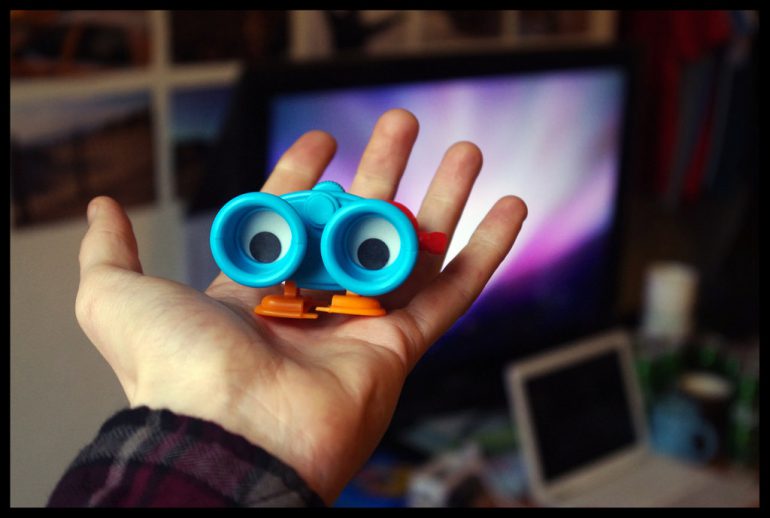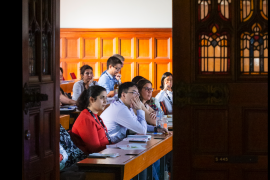This post was co-contributed by Alex Page, Alyson Simpson, and Tanya Doulaveras from FASS Education, and participants in the Peer Observation of Teaching Program, Semester 1, 2018.
What is the Peer Observation of Teaching Program?
The FASS Peer Observation of Teaching (POT) program helps academics improve their teaching through mutual observation, feedback and discussion of another’s teaching practices. In this structure, the POT program can support colleagues in developing their teaching and pedagogic thinking in a non-judgemental and supportive manner. Participants experience multiple benefits from reflecting on the teaching of themselves and others in a time-efficient program. Evidence of this work can be included in annual academic performance and development reviews (AP&D), within the teaching cases of promotion applications, and as evidence for teaching awards and educational fellowships such as the HEA. Proof of the program’s success is that all participants in Semester 1 note improvements to their teaching following the process. We discuss the POT process, and present some of their findings here.
Evidence for peer observation for improving teaching
Current higher education studies point to the benefits gained by watching a peer teach in lecture or tutorial settings including feeling greater confidence in their own practice and learning how to adapt their teaching in response to feedback. By “seeing [teaching practice] rather than being told about it” (Hendry & Oliver, 2012, p. 8) teachers are motivated to change and improve their own practice (Bell & Thomson, 2018). Research demonstrates that the experience of reflecting on a trusted partner’s feedback; watching how others stimulate student engagement; and trialling new strategies leads to better teaching (Bain, 2011; Ramsden, 2003; McKeachie & Svinicki, 2013). Ultimately, the POT aims to highlight blind spots in our teaching delivery, creates an informal collegial context where teaching successes and obstacles can be discussed openly (Thomson, Bell, & Hendry, 2015), and most importantly, helps us learn how to improve.
What participants in the FASS program thought
What did recent participants of the Peer Observation of Teaching Program think? In semester 1 2018, 15 academics completed the POT. Despite some initial hesitance, all participants described their experience as a great opportunity to reflect on and improve their practice. From early career to well established academics, broad insights gained were highly valued: “I initially thought that there wasn’t much for me to learn from the POT program. And now that I have completed the program, I have become a convert because it has helped me improve my teaching”. Participants mentioned the structure of the program, which set protocols of respect and helped identify specific, personalised goals for improvement.
I initially thought that there wasn’t much for me to learn from the POT program. And now that I have completed the program, I have become a convert because it has helped me improve my teaching
The process of watching another teacher was named as “the most useful and constructive way to improve and to reflect upon my teaching”. Many participants spoke of learning new styles and approaches to subject material vicariously through their peers, across faculties, departments, and disciplines, with one participant noting it was “inspirational to watch X teaching a highly technical subject that I imagine might normally be hard to follow and navigate”. Seeing the detail of how good teaching is achieved in real time proved benefits regardless of the differing disciplinary context: “I could see how important it is to explain the aims of the lesson and what they are doing during the tutorial. I could see how each activity is connected to increase the sense of the students.”
Not only good for individuals, peer observation, when formalised, can also bring departments together:
I found the experience to be very interesting and useful, as I was partnered with a colleague from a different department that I had never talked to before, although we are in the same School.
Another benefit of the program included introduction to a range of new practical ways to implement technology-enhanced teaching. eLearning tools explored included quizzing tools such as Socrative and Kahoot, as well as other methods such as peer marking, online language tools, and the sharing of differing approaches to Canvas sites to better engage students both inside and outside the classroom.
The use of blog postings after the observation cycle gave participants the chance to reflect upon their own experiences in the classroom and record future goals such as improving teacher “engagement with students and also engagement among the students”. Many participants noted how peer observation encouraged collegiality through insightful comments from a supportive colleague: “Not only did it give me insight into teaching practices elsewhere… I came out of both sessions with concrete teaching tips and even a new teaching tool”.
Peer Observation is ultimately “a great opportunity… to reflect upon [your] teaching”, as it is also a creative space for growing our community of great teachers at the University of Sydney and “should be done on a regular basis in order to get [the] most out of it”. As one participant summarised: “Nothing is better than collaboration with peers in sharing expertise and I would recommend this to all my colleagues”. We couldn’t agree more.
Sign up now for participation in Semester 2
If you are a teacher in the Faculty of Arts and Social Sciences, FASS Teaching and Technology Innovation welcomes you in Semester 2 to join us in the program.
- Who: All FASS teachers
- When: Friday 24 August and Friday 5 October 2018
- Where: FASS Meeting Room 323, Brennan A18
Editor’s note: The University-wide Open Door Week will be back later in semester 2, with enhancements including a more diverse range of classes and the opportunity to connect with colleagues. We’ll announce more details via Teaching@Sydney soon.





